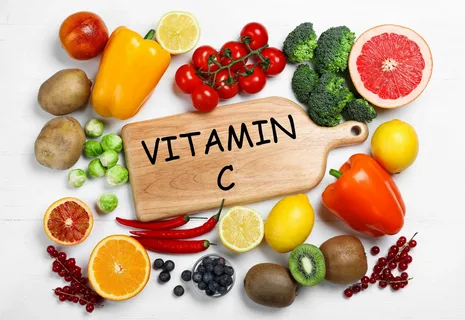Vitamin C is a vital nutrient that supports numerous functions in the body, including immune defense, skin health, and the absorption of iron from plant-based foods. With the wide variety of vitamin C supplements available, selecting the best one can be overwhelming. This guide will help you understand the key factors to consider when choosing a vitamin C supplement to meet your specific needs.
Understanding Vitamin C
What is Vitamin C?
Vitamin C, also known as ascorbic acid, is a water-soluble vitamin that is essential for the growth, development, and repair of all body tissues. It plays a key role in collagen formation, wound healing, and the maintenance of cartilage, bones, and teeth.
Benefits of Vitamin C
- Boosts Immune System: Vitamin C stimulates the production and function of white blood cells, which are essential for fighting infections.
- Antioxidant Properties: It helps protect cells from damage by free radicals, which can contribute to aging and diseases.
- Skin Health: Vitamin C is crucial for collagen synthesis, which keeps skin firm and youthful.
- Iron Absorption: It enhances the absorption of iron from plant-based sources, helping to prevent iron deficiency anemia.
Types of Vitamin C Supplements
Ascorbic Acid
Ascorbic acid is the purest form of vitamin C. It is highly effective but can cause gastrointestinal discomfort in high doses for some individuals.
Buffered Vitamin C
Buffered vitamin C is combined with minerals such as calcium, magnesium, or potassium. This form is less acidic and gentler on the stomach, making it suitable for people with sensitive digestive systems.
Liposomal Vitamin C
Liposomal vitamin C is encapsulated in liposomes, which are tiny fat particles. This enhances its absorption and bioavailability, ensuring more vitamin C reaches your cells.
Ester-C
Ester-C is a patented form of vitamin C that contains calcium ascorbate and vitamin C metabolites. It is designed to be gentle on the stomach and provide prolonged benefits.
Natural Sources
Some supplements derive their vitamin C from natural sources such as acerola cherries, rose hips, and camu camu. These supplements often contain additional beneficial compounds but may be more expensive.
Choosing the Right Dosage
Recommended Daily Allowance (RDA)
The RDA for vitamin C varies by age, sex, and life stage:
- Adult Men: 90 mg per day
- Adult Women: 75 mg per day
- Pregnant Women: 85 mg per day
- Breastfeeding Women: 120 mg per day
Higher Dosages
Higher dosages may be recommended for certain health conditions, stress, or during times of illness. However, it is important not to exceed the tolerable upper intake level of 2000 mg per day to avoid side effects like diarrhea and kidney stones.
Additional Considerations
Bioavailability
The bioavailability of a supplement refers to how well it is absorbed and utilized by the body. Liposomal and ester-C forms typically offer higher bioavailability compared to ascorbic acid.
Additives and Fillers
Check the ingredient list for unnecessary additives, fillers, or artificial colors. Opt for supplements with minimal ingredients and those free from allergens if you have sensitivities.
Certification and Quality
Look for third-party certifications from organizations such as USP, NSF, or ConsumerLab to ensure the product meets quality and safety standards. Choose reputable brands with transparent sourcing and manufacturing practices.
Forms of Vitamin C Supplements
Tablets and Capsules
Tablets and capsules are the most common forms of vitamin C supplements. They are convenient, portable, and have a long shelf life.
Powders
Vitamin C powders can be mixed with water or juice. They offer flexible dosing and are ideal for those who prefer not to swallow pills.
Gummies
Gummy vitamins are a tasty option, particularly for children or those who dislike swallowing pills. However, they often contain added sugars and may have lower dosages of vitamin C.
Liquid
Liquid vitamin C is quickly absorbed and easy to consume. It is a good option for those with swallowing difficulties or digestive issues.
Intravenous (IV)
IV vitamin C is administered directly into the bloodstream, offering 100% absorption. This method is typically used in clinical settings for therapeutic purposes.
FAQs
What is the best time to take vitamin C?
Vitamin C can be taken at any time of the day. However, taking it with meals can enhance absorption and reduce the risk of gastrointestinal discomfort.
Can vitamin C supplements cause side effects?
In high doses, vitamin C can cause side effects such as diarrhea, nausea, and kidney stones. It is best to stay within the recommended dosage unless advised otherwise by a healthcare professional.
Is it better to get vitamin C from food or supplements?
It is always best to get nutrients from food whenever possible. Fruits and vegetables not only provide vitamin C but also other beneficial compounds like fiber and antioxidants. Supplements can be used to fill gaps in your diet.
How long does it take to see the benefits of vitamin C supplements?
The timeframe for experiencing benefits varies. For immune support, improvements may be seen within a few days. For skin health, it may take several weeks to notice changes.
Can vitamin C prevent or cure the common cold?
Vitamin C cannot cure the common cold, but it may reduce the duration and severity of symptoms. Regular supplementation is more effective than taking it after the onset of symptoms.
Is synthetic vitamin C as effective as natural vitamin C?
Yes, synthetic and natural vitamin C are chemically identical and equally effective. However, natural sources may contain additional beneficial compounds.
How do I know if I need a vitamin C supplement?
If you have a balanced diet rich in fruits and vegetables, you may not need a supplement. Those with dietary restrictions, certain medical conditions, or increased needs (e.g., smokers) may benefit from supplementation.
Can children take vitamin C supplements?
Yes, children can take vitamin C supplements, but it is important to follow age-appropriate dosages and choose formulations suitable for their age group.
Are there any medications that interact with vitamin C?
Vitamin C can interact with certain medications, including chemotherapy drugs and statins. Always consult with a healthcare provider before starting a new supplement if you are on medication.
How should I store my vitamin C supplements?
Store vitamin C supplements in a cool, dry place away from direct sunlight. Keep them out of reach of children.
Conclusion
Choosing the best vitamin C supplement involves considering factors such as form, dosage, bioavailability, and additional ingredients. By understanding these elements, you can select a supplement that meets your health needs and preferences. Always consult with a healthcare professional before starting any new supplement regimen to ensure it is appropriate for your individual circumstances.
- What Is The Impact Of Toxic Masculinity On Relationships? - May 31, 2025
- Navigating Polyamory: Communication And Boundaries In Love - May 31, 2025
- Sculptra Surrey – Collagen Stimulation Therapy Near Norbiton, Surrey - May 31, 2025





